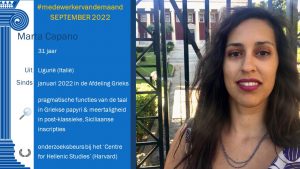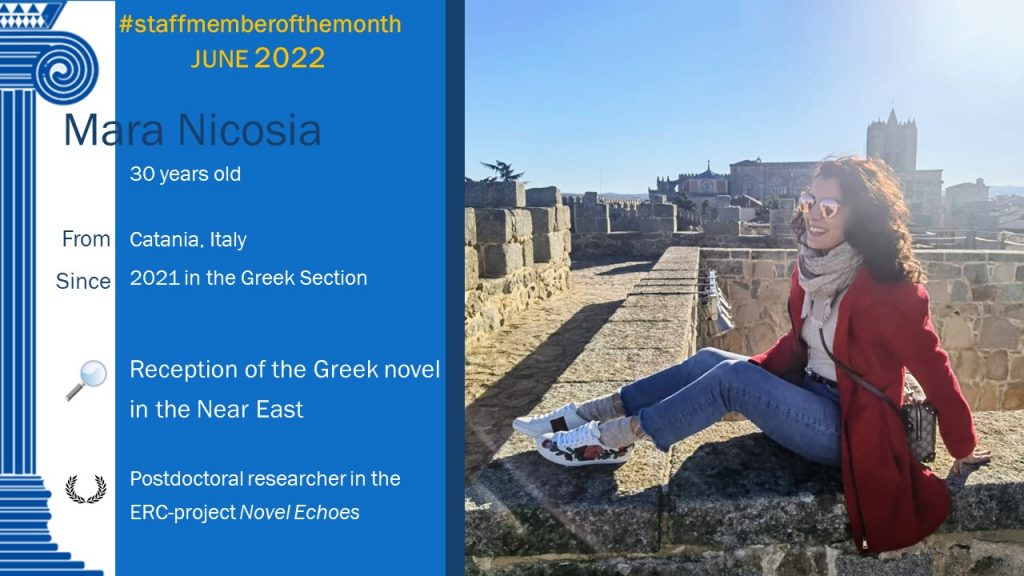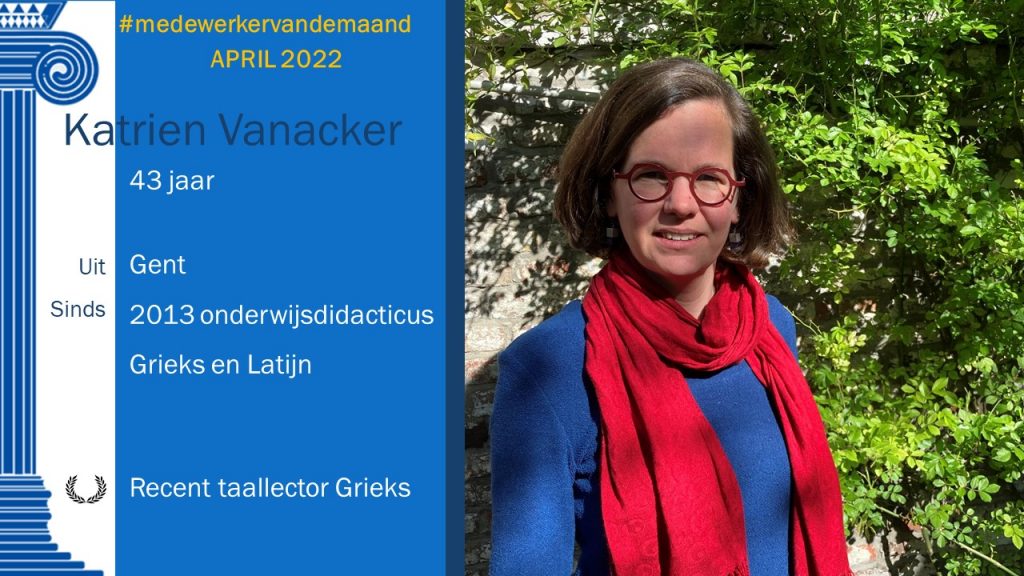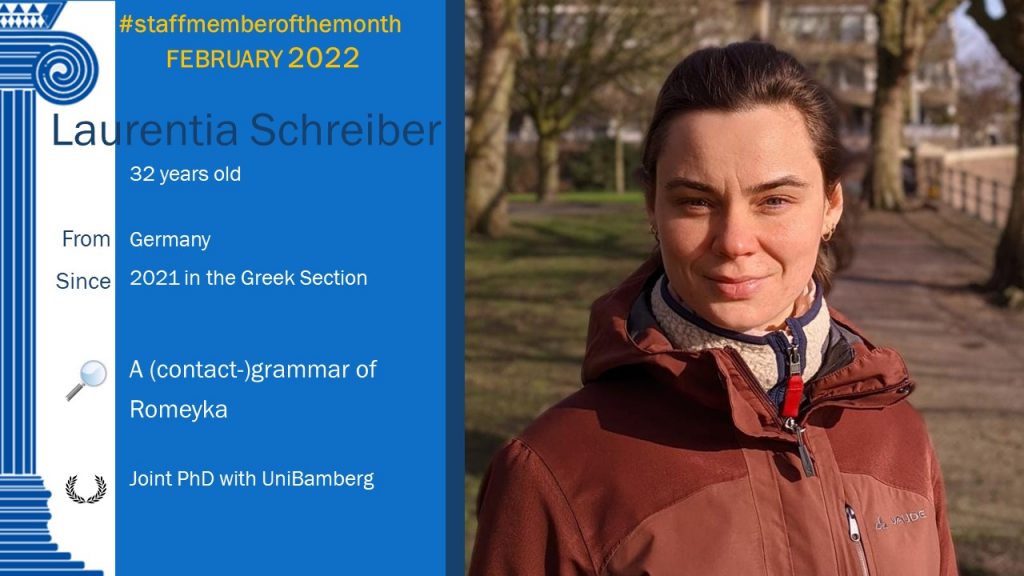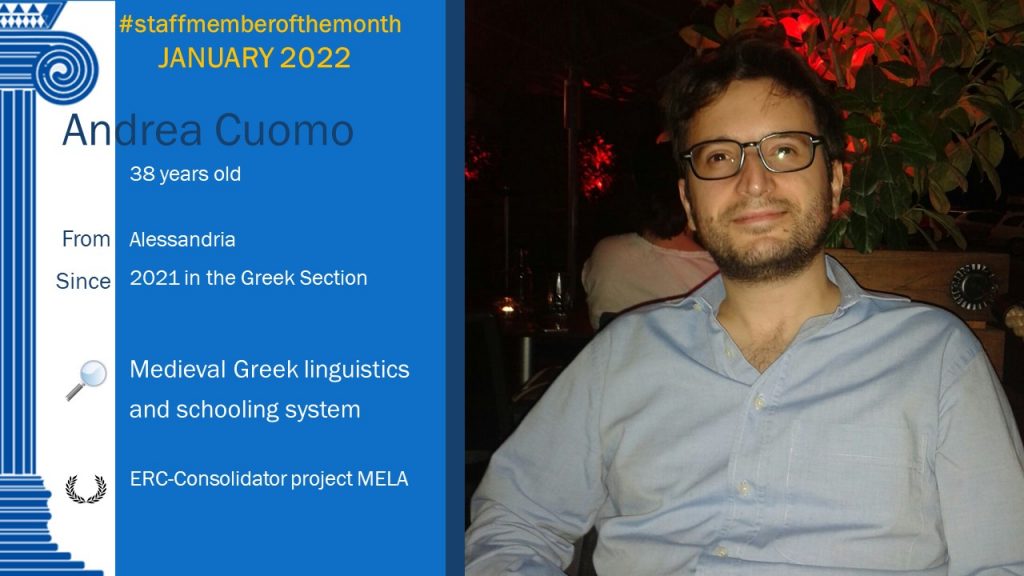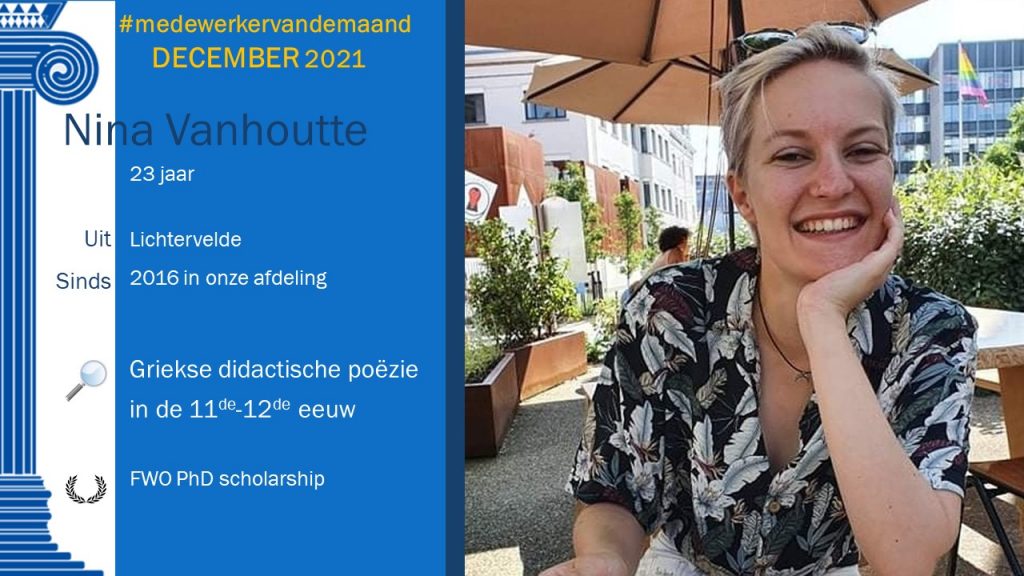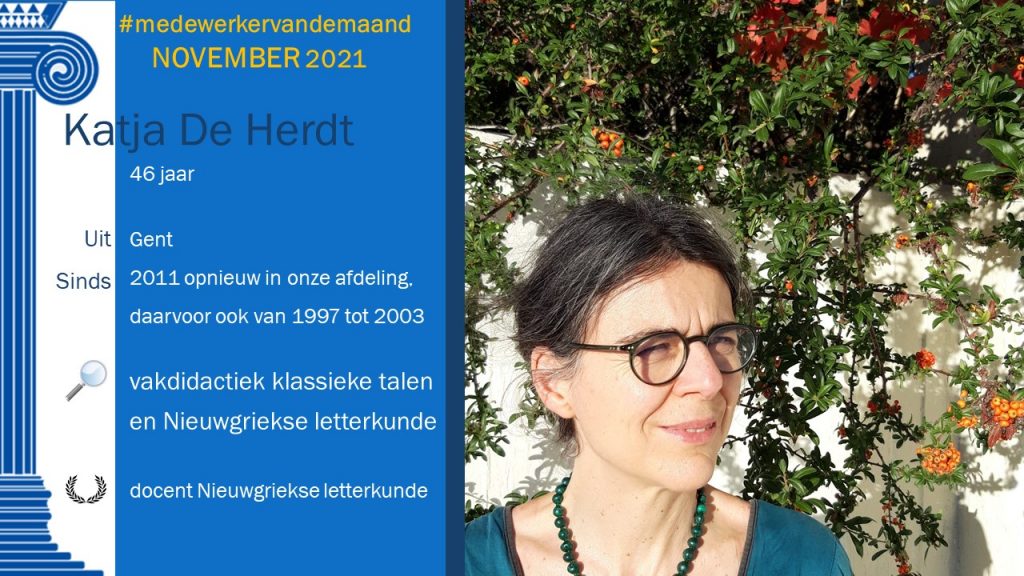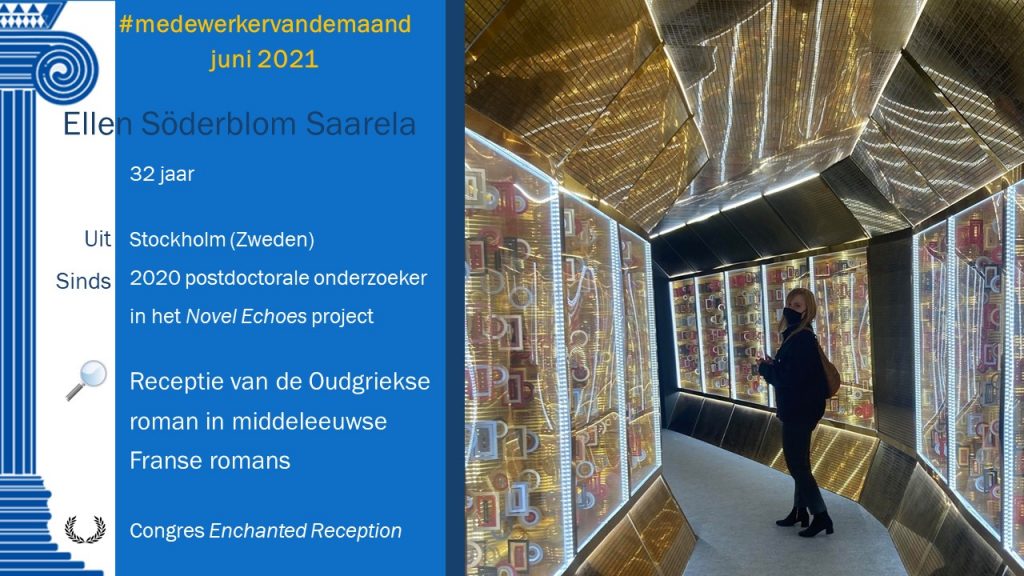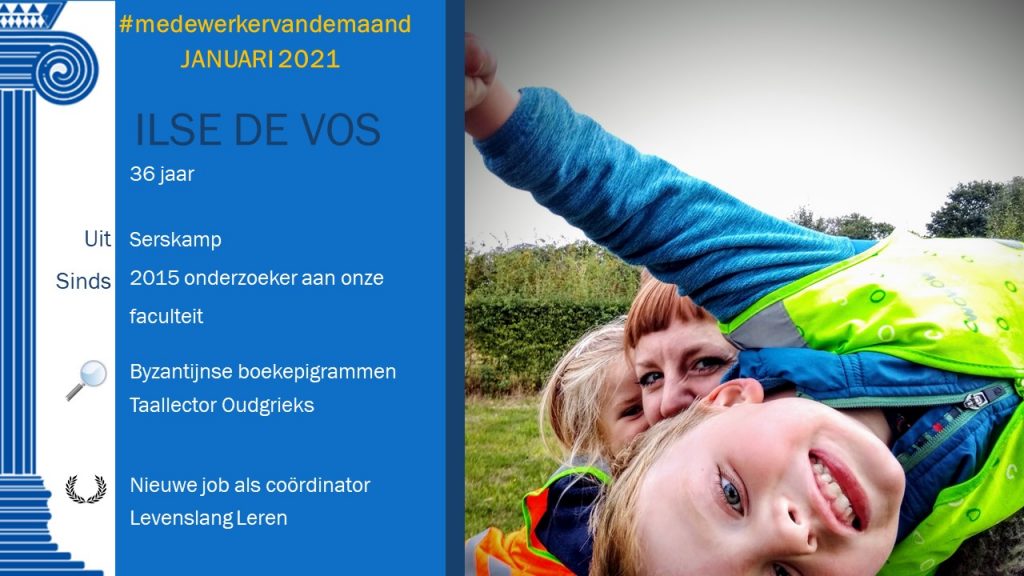The new academic year has recently kicked off. That usually also means a few new faces at the Blandijn! Emma Huig is one of them. She will be working on her PhD project on hagiography for the next four years. Julie Van Pelt checked in with her to see how she is adjusting to her new environment.
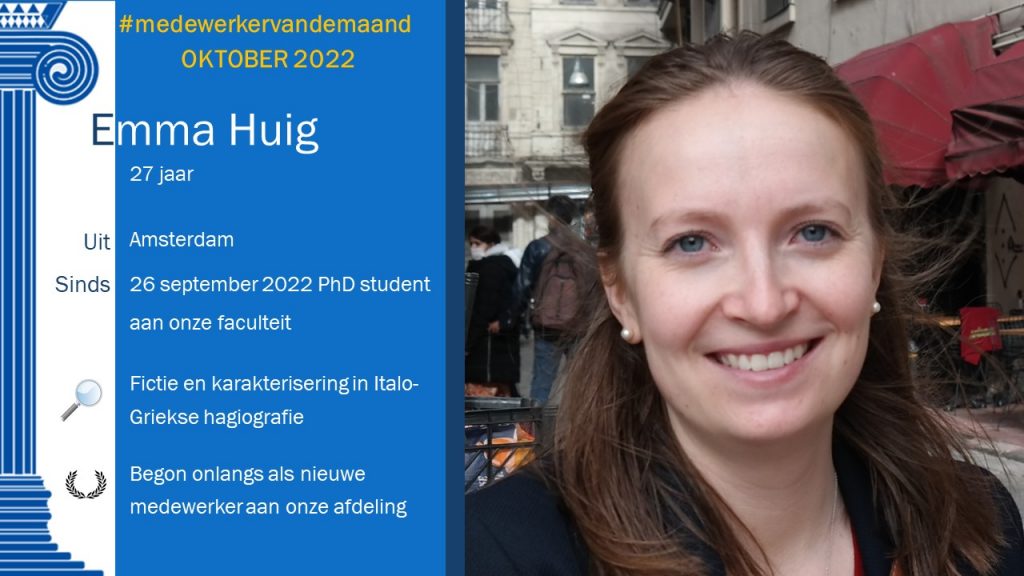
Hello Emma! Good to have you on board as a new PhD student in the Greek section. As a member of the Department of Literary Studies, you will be studying Italo-Greek hagiography, I hear. “Italo-What?”, our readers must think. But first things first: how are you settling in to your new job?
It is very exciting and at the same time a little bit daunting to start this four-year project! Thankfully, everyone at the university has been very kind and welcoming. Personal welcome meetings with my supervisors, meter and the Welcome Office have helped a lot with settling into this new environment. It is also very nice to notice that there is a real sense of community in the office and with other colleagues in the department. I am excited to get started on the PhD-project and to explore everything the university and the city of Ghent have to offer!
After learning that I could start my PhD in Ghent I also got very excited to move to Belgium and to have the opportunity to explore a new cultural and academic environment in Ghent.
About that PhD research, then… Can you tell us a bit more about your project and what you hope to achieve in the next four years?
In the next four years I will be studying Italo-Greek hagiography, Greek texts about saints and martyrs from medieval Southern-Italy and Sicily. I will be looking at aspects of fictionality, a topic which is particularly relevant and interesting in relation to the genre of hagiography. I will do this primarily by looking at the construction of characters in the narratives, for example if and how the saints or martyrs are presented as fictional or historical. I am looking forward to exploring these texts, which have not quite yet received the attention they deserve!
Personally, I hope to of course develop my research skills and also improve my knowledge of some modern languages such as Italian, Modern Greek and Turkish. If possible I would also like to participate in academic and outreach initiatives organised by the department.
Before you came to Ghent, you were doing your MA at Oxford University, and before that, you studied in your home country, The Netherlands. What a journey already! Were you eager to move back to the European continent, and what will you miss about the UK?
During my time in the UK, I was certainly looking forward to moving back to ‘Europe’ and be closer to my hometown of Amsterdam. Most of my family and friends still live there so it is nice that it is now a lot easier to go back to see them. After learning that I could start my PhD in Ghent I also got very excited to move to Belgium and to have the opportunity to explore a new cultural and academic environment in Ghent.
However now I am back on the continent I also miss living in the UK. Especially Oxford will always be a special place where I had some wonderful experiences and met some great people. During the past two years in the UK my partner and I visited quite a few places all over England and Wales and it was so interesting to see all the differences between the regions, and to enjoy the amazing countryside with hills and mountains, which is always special for a person from the Low Lands!
It is very nice to notice that there is a real sense of community in the office and with other colleagues in the department. I am excited to get started on the PhD-project and to explore everything the university and the city of Ghent have to offer!
It is not the first time that a person from the Netherlands joins our team here in Ghent, Belgium. It seems to be somewhat of a recurring experience that the shared language between the two countries proved deceiving, because the Belgian and Dutch cultures are, in fact, quite different. Have you experienced something similar already, and if so, what was the most striking difference to you?
I would definitely agree that the shared language is deceiving, as Belgium really feels different compared to the Netherlands. Perhaps this fallacy of similarity even adds to the sense of alienation, as one is not prepared to experience a culture shock which thereby hits even harder, if that makes sense.
What I have noticed so far in Belgium is the importance of personal contact. I already mentioned the personal welcome meetings I had the first weeks at the UGent, which I think are a good example of this. Dutch society, compared to some countries, is super organised in some areas, sometimes almost a bit too much. Especially in cities like Amsterdam everything follows a certain pattern or rhythm in order for things to be the most efficient. As a result, the personal element can get a bit lost. In Belgium, public spaces can sometimes come across as a bit less uniform, but the importance of personal contact is definitely a positive aspect of this country. Another example related to this are formal lunches. In the Netherlands, the stereotypical ‘business lunch’ is a quick cheese sandwich and a glass of milk at a standing table. In Belgium, I get the sense that going for a formal lunch means a proper meal, sometimes even including drinks. And of course the superiority of Belgian food and drink is another important difference…
We hope that you feel right at home in Ghent, of course! What are the things you like to do in your spare time to make yourself feel at home anywhere?
In my spare time I like being outdoors rowing, cycling, running or walking. These activities also allow one to explore the surroundings. So far I have explored the centre of Ghent on foot, and the areas around the Blaarmeersen and the Bourgoyen-Ossemeersen reserve while running or cycling. I really love both the urban and the natural environments here and I am looking forward to see more!
Thank you for this interview, Emma. We are grateful to have gotten to know you already a little bit better, and we look forward to seeing much more of you and your research in the future. Welcome at UGent!
